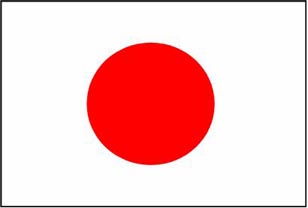Japan to commit to bigger development role at Africa conference
 Tokyo - Japan aims to play a major role in Africa through increased aid in building infrastructure and agricultural support, a Japanese Foreign Ministry official said Thursday.
Tokyo - Japan aims to play a major role in Africa through increased aid in building infrastructure and agricultural support, a Japanese Foreign Ministry official said Thursday.
At the Fourth Tokyo International Conference on African Development (TICAD) next week, Japan plans to show its commitment in supporting development in Africa, especially in building infrastructure and increasing agricultural productivity.
The three documents to be released at the TICAD in the central city of Yokohama would set a general direction of aid to Africa, concrete action plans for the next five years and a follow-up mechanism to monitor the progress of the aid, the ministry official said at a press conference.
Prime Minister Yasuo Fukuda has already announced Japan's plan to double its Official Development Aid (ODA) to African nations to 1.8 billion dollars by 2012.
In the past 15 years since the first TICAD was held in 1993, the official said that Japan achieved its commitments. TICAD is held every five years in Japan.
But it has seen its foreign aid drop by 30 per cent in 2007 and is struggling to maintain its influence in Africa in the face of rapidly expanding aid and investment in the resource-rich continent from emerging donors, especially China.
Some 80 per cent of Japan's ODA had been spent for Asian nations in the past, which helped build infrastructure in the region, the official said.
"We are shifting our ODA to Africa, and about 40 per cent of grant aid goes there," he said. "We'd like to spend more of soft loans on Africa."
At the three-day conference, Fukuda was expected to announce 4-billion-dollar aid package for development of road networks in Africa in the next five years, he said.
The fourth TICAD is to be the largest international conference held in Japan, with nearly 5,000 invited participants, including representatives of African nations, Asia, European Union and international organizations.
Participants were to discuss agriculture, health, education and environmental issues from May 28-30. (dpa)